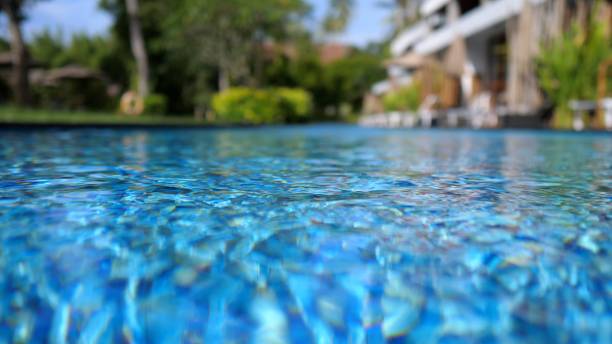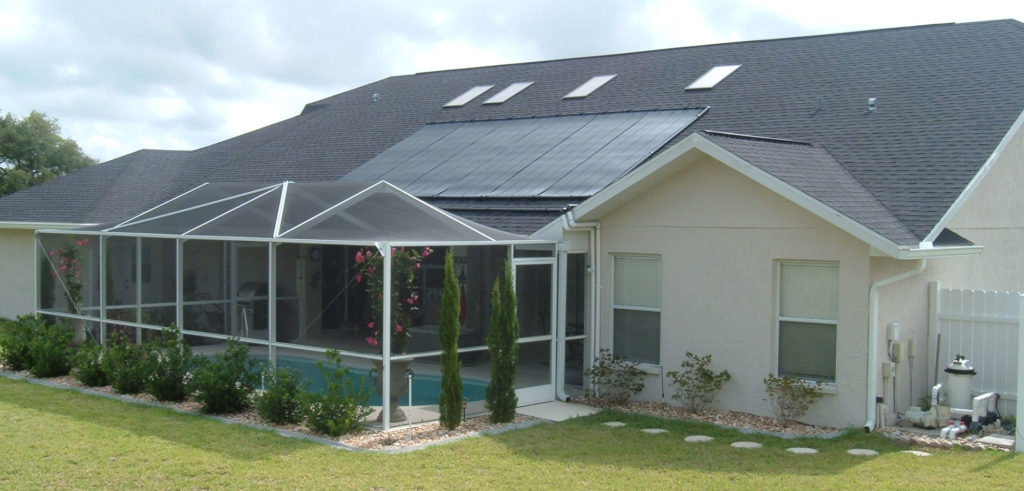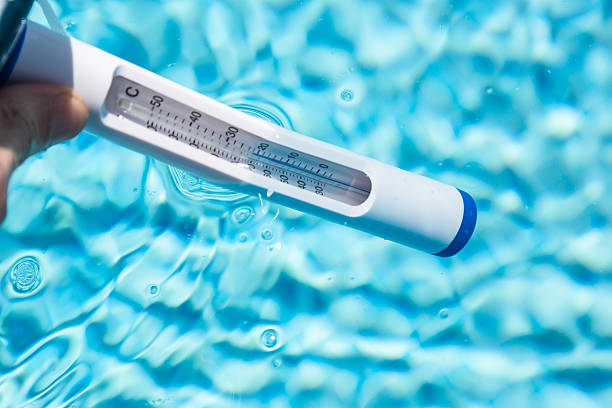Blog
How Pool Heaters Work
By Admin | Jul 21, 2020
How Pool Heaters Work
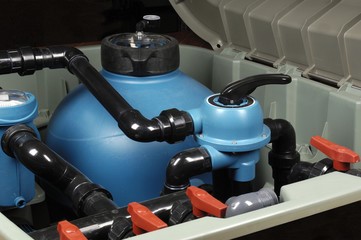
As the pool pump circulates water in the swimming pool, the water drawn from the pool passes through a filter, and the heat propels heater. The heat pump heater has a fan that brings in the outside air and guides it over the evaporator coil. Liquid refrigerant within the evaporator coil absorbs the heat from the outdoor air and becomes a gas. The warm gas in the coil then passes over the compressor. The compressor raises the temperature, creating a hot gas that then passes through the condenser. The condenser transmits the heat from the hot gas to the cooler pool water circulating through the heater. The heated water then goes back to the pool. The hot gas, as it flows through the condenser coil, returns to liquid form and back to the evaporator, where the entire process starts again.
Heat pump pool heaters work effectively on condition that the outside temperature remains above the 45ºF–50ºF range. The cooler the outside air they draw in, the more energy they consume. Nevertheless, since most people use outdoor swimming pools during warm and mild weather, this generally isn’t an issue.
Choosing a Heat Pump Pool Heater
Heat pump pool heaters cost more than gas pool heaters, but they normally have much lower annual operating costs because of their higher efficiencies. With proper maintenance, heat pump pool heaters usually last longer than gas pool heaters. Hence, you’ll save more money in the long run.
When choosing a heat pump pool heater, you should consider its:
- Size
- Efficiency
- Costs
Sizing a Heat Pump Pool Heater
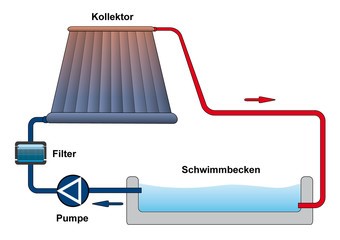
Sizing a heat pump pool heater entails many factors. A heater is mostly sized according to the pool’s surface area and the difference between the pool and the average air temperatures. Other factors also impact the heating load for outdoor pools, like wind exposure, humidity levels, and cool night temperatures. Thus, pools located in areas with higher average wind speeds at the pool surface, lower humidity, and cool nights will need a larger heater.
Heat pump pool heaters are valued by Btu output and horsepower (hp). Standard sizes comprise 3.5 hp/75,000 Btu, 5 hp/100,000 Btu, and 6 hp/125,000 Btu.
To determine an approximate heater size for an outdoor swimming pool, follow these steps:
- Determine your needed swimming pool temperature.
- Determine the normal temperature for the coldest month of pool use.
- Deduct the average temperature for the coldest month from the desired pool temperature. This will give you the temperature rise needed.
- Calculate the pool surface area in square feet.
- Apply the following formula to determine the Btu/hour output requirement of the heater:
- Pool Area x Temperature Rise x 12
- This formula is based on 1º to 1-1/4ºF temperature rise per hour and a 3-1/2 mile per hour average wind at the pool surface. For a 1-1/2ºF rise, multiply by 1.5. For a 2ºF rise multiply by 2.0.
Finding Heat Pump Swimming Pool Heater Efficiency
The energy efficacy of heat pump swimming pool heaters is measured by the coefficient of performance (COP). The higher the COP number, the more efficient. Nevertheless, there is no standard test for measuring the COP. Hence, you indeed can’t compare the COPs of different models unless you know that the manufacturers used the same test for each model. For instance, the same heat pump will operate at a higher COP when the outside air temperature is higher.
Usually, manufacturers measure the COP by testing a heat pump pool heater with an outdoor temperature of 80ºF and a pool temperature of 80ºF. COPs typically range from 3.0 to 7.0, which converts to an efficiency of 300%–700%. This means that for each unit of electricity it takes to runs the compressor, you get 3–7 units of heat out of the heat pump.
Installation and Maintenance
Proper installation and maintenance of your heat pump pool heater can optimize its efficacy. It’s best to have a qualified pool expert install the heater, particularly the electric hookup, and perform complicated maintenance or repair tasks.
Read your owner’s guide for a maintenance schedule and recommendations. You’ll perhaps require to tune up your pool heater annually. Because of a heat pump pool heater’s many moving and electrical parts, it will probably need periodic service by an air conditioning technician.
With the right installation and maintenance, heat pump pool heaters can last 10 or more years.
Resources and References:
Contact us today
We’re here to help you! Contact our support line during business hours (8am-4pm ET)

